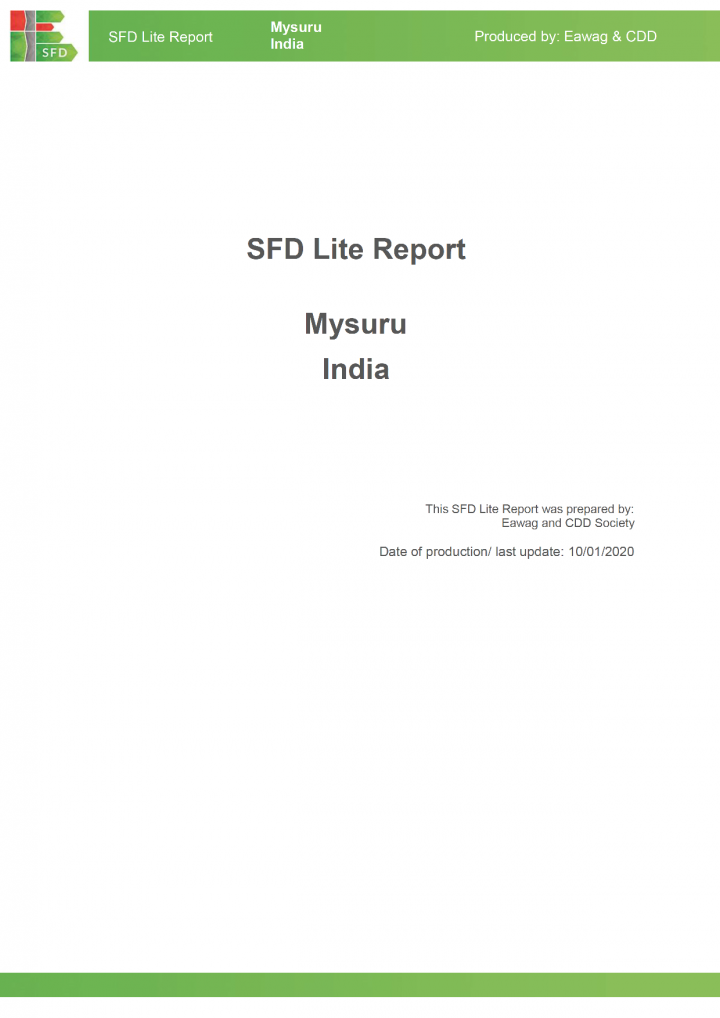
Author(s): Eawag & CDD Society
Published in: 2020
Pages: 11
Publisher: Eawag, Dübendorf, Switzerland
SFD Lite Report - Mysuru, India
Mysuru City is situated in southern part of the state at 770 m above sea level. According to the census 2011, the population of Mysuru was 893,062 and number of households (HH) were 209,650. Overall, the SFD Graphic depicts that 72% of excreta is safely managed while 28% is discharged untreated to the environment. Wastewater through sewer systems is generated by 92% of the total population of the city. About 78% of this wastewater is reaching the treatment plants, resulting in 68% of treated wastewater. 21% of the wastewater is not delivered to treatment and close to 4% of the wastewater is delivered to treatment but not treated. Mysuru City is equipped with three STP based on aerated lagoon wastewater treatment system technology with treatment capacity of 187 MLD. As per field surveys and observations in Mysuru, 7% of the total population is dependent upon OSS out of which 1% of the total population of Mysuru has septic tanks in their respective households with outlet connected to open drain or storm sewer, 3% of the total population has lined pits with semi permeable walls and open bottom without any outlet or overflow and 3% has unlined pits with no outlet or overflow. Emptying frequency differs widely across the city, depending upon the type of OSS and the size of household. Faecal sludge is discharged by private emptiers into open drains or other water bodies, since no co-treatment is practised and there are no dedicated faecal sludge treatment plants. There is no treatment of the FS collected since it is discharged directly into the drains, reaching the environment, untreated.
Keywords
SFD; Shit Flow Diagram; excreta disposal; sewers; sanitation; faecal sludge management; septic tank;


